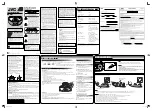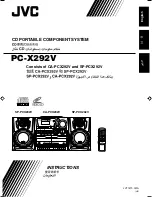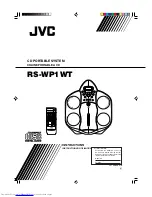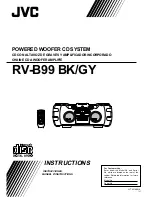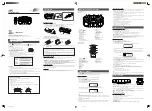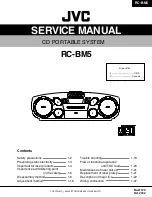
5
22. Give your work undivided attention. Looking around, carrying on a conversation and “horse-play” are
careless acts that can result in serious injury.
23. Maintain a balanced stance at all times so that you do not fall or lean against the spindle or other
moving parts. Do not overreach or use excessive force to perform any machine operation.
24. Use the right tool at the correct speed and feed rate. Do not force a tool or attachment to do a job for
which it was not designed. The right tool will do the job better and safer.
25. Use recommended accessories; improper accessories may be hazardous.
26. Maintain tools with care. Keep drill bits sharp and clean for the best and safest performance. Follow
instructions for lubricating and changing accessories.
27. Make sure the work piece is securely attached or clamped to the table. Never use your hand to hold
the work piece.
28. Turn off the machine before cleaning. Use a brush or compressed air to remove chips or debris — do
not use your hands.
29. Do not stand on the machine. Serious injury could occur if the machine tips over.
30. Never leave the machine running unattended. Turn the power off and do not leave the machine until it
comes to a complete stop.
31. Before turning on machine, remove all extra equipment such as keys, wrenches, scrap, stock, and
cleaning rags away from the machine.
32. Always use a hold-down or push block when surfacing stock less than 12" inches long, or 3 inches
wide, or 3 inches thick.
33. Do not perform
jointing operations on material shorter than 8", narrower than 3/4" or less than 1/4"
thick.
34. The hands must never be closer than 3 inches to
the cutterhead (see Figure).
35. Never apply pressure to stock directly over the
cutterhead. This may result in the stock tipping
into the cutterhead along with the operator's
fingers. Position hands away from extreme ends
of stock, and push through with a smooth, even
motion. Never back workpiece toward the infeed
table.
36. To avoid kickback, the grain must run in the
same direction you are cutting. Before
attempting to joint, or plane, each work piece
must be carefully examined for stock condition
and grain orientation.
37. When working with a swirl grain wood or burls, making it necessary to plane against the grain, use a
lesser depth of cut and a slow rate of feed.
Summary of Contents for JJP-12
Page 30: ...30 Assembly Drawings Infeed Table Assembly ...
Page 31: ...31 Outfeed Table Assembly ...
Page 32: ...32 Cutterblock Assembly ...
Page 33: ...33 Base Assembly ...
Page 34: ...34 Motor Assembly ...
Page 35: ...35 Planer Table Assembly ...
Page 36: ...36 Fence Assembly ...
Page 38: ...38 Notes ...
Page 39: ...39 Notes ...



























